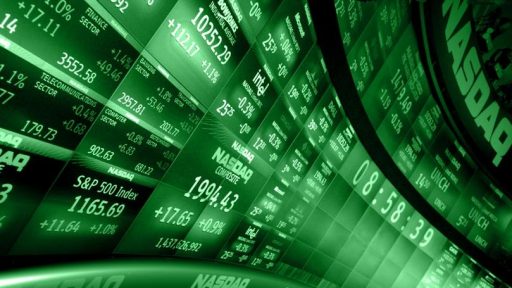- Home
- >
- Daily Accents
- >
- Equity Market Winners And Losers After The Fed’s Rate Hike

Equity Market Winners And Losers After The Fed’s Rate Hike

Winners
Banks: There is a long held belief that when interest rates rise, so do bank profits. Retail bank operations are predicated on net interest margins, which is the difference in the amount received for extending a loan to what is paid to savers. Since the Financial Crisis this measure of performance has struggled thanks to quantitative easing and near zero interest rates. Now that rates appear to be on the rise, the financial sector can ascend to prominence once again. It helps that President-elect Trump is taking a lenient stance on the financial sector as he intends to repeal some parts of Dodd-Frank. The combination of the two pushed the Financial Select Sector SPDR (NYSE:XLF), which tracks stocks in the financial sector, up over 20% in the past 3 months. Many individual equities will benefit in the coming months but none more than Citigroup (NYSE:C), JP Morgan (NYSE:JPM) and Bank of America (NYSE:BAC). Each of these financial institutions has already started to show new life this year and will only continue to improve come next earnings season.
Insurers: Few companies were rooting harder for a rate hike than U.S. insurance companies. Insurers typically make money from investing premiums into high quality bonds, whose yields suffered amid the sustained low interest rate environment. Last week’s hike along with the promise of three more in 2017 should be a much needed financial boost. Watch Prudential (NYSE:PRU) and MetLife (NYSE:MET) fourth quarter reports for any indication of what interest rates mean for future results.
Losers
Multinationals: Most investors know that when interest rates rise, so does the strength of the US dollar. Alas the greenback hit a 14 year high the day after the Fed announced it would be raising short-term rates. This impacts many facets of the economy but none more which are more important than trade. A stronger dollar means American goods will cost more in overseas markets, making multinationals less competitive. Look for currency headwinds to impact quarterly results across multiple industries from retail to technology. Some companies that will be most affected include Amanzon (NASDAQ:AMZN), Walmart (NYSE:WMT) and Google (NASDAQ:GOOGL), all of which hold a huge presence internationally.
Automakers: Unlike the housing market, automotives don’t rally behind a rate hike. Simply put, rising rates make it more expensive to purchase a car in the U.S. while a strong dollar does the same for foreign markets. This won’t do the Fords (NYSE:F) or GMs (NYSE:GM) of the world any favors. Ford, in particular, struggled to meet its targets during the third quarter despite favorable oil prices and low interest rates. It won’t be surprising if analysts at Estimize drag down fourth quarter estimates even further in the coming months. That said, the whole automotive industry won’t come under fire. Repair shops like Advanced Auto Parts (NYSE:AAP) typically thrive when interest rates rise because it then becomes cheaper to fix a car rather than buy a new one.
Oil: Anything that happens in the economy impacts oil prices. Due to a preexisting OPEC agreement, oil is quoted in U.S. dollars. As mentioned above, strength in the dollar doesn’t do Corporate America and now oil any favors. Following the announcement, the price of WTI Crude dropped by nearly $1 but has since recovered its losses. Its unlikely that this puts lasting pressure on the oil majors (CHEVRON (NYSE:CVX), ExxonMobil (NYSE:XOM), etc.), which made a huge leap following new arrangements for OPEC and Russia to cut production. If anything, the two factors will offset and oil producers will be back to square one.
 Varchev Traders
Varchev Traders Read more:
If you think, we can improve that section,
please comment. Your oppinion is imortant for us.











